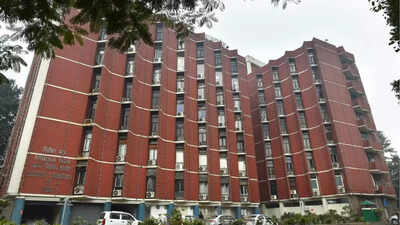
The National Medical Commission (NMC) on Friday released detailed clarifications responding to stakeholder queries over the recently notified Medical Institutions (Qualifications of Faculty) Regulations, 2025, which came into force on 30 June 2025. In an official communication, the Post Graduate Medical Education Board (PGMEB) under the NMC stated that several stakeholders had sought clarity on provisions related to eligibility, experience, and recognition of faculty designations during the transition phase. The Commission has now released a set of Frequently Asked Questions (FAQs), providing point-by-point explanations to ensure uniform interpretation and compliance.
Applicability and transitional provisions
The regulations are effective from the date of their publication, June 30, 2025. During the transition period, the NMC will recognise continuous, full-time experience of three years in specific institutions and departments dedicated to new specialties.Eligible experience will include:
- Full-time work in departments of NMC-recognised medical colleges or teaching medical institutions with dedicated infrastructure for the new specialty.
- Tenure at nationally recognised institutions such as AIIMS, PGIMER Chandigarh, NIMHANS Bengaluru, JIPMER Puducherry, and Sree Chitra Tirunal Institute, Thiruvananthapuram.
- Experience in NBEMS-accredited institutes and other reputed national or international institutions approved by the NMC based on specific assessment.
Criteria for Senior Consultant, Professor, and Associate Professor
As per the new framework, a senior consultant will be defined as a specialist working in an NBEMS-accredited department of a government institute who meets the board’s prescribed qualifications and experience to function as a postgraduate teacher. Such candidates must also provide an official experience certificate from their institution when seeking appointment as Professor in any medical college.To qualify as a Professor, an individual must have at least three years of postgraduate teaching experience after becoming eligible as a Senior Consultant and PG teacher in the same specialty. Similarly, those with cumulative 10 years of post-PG experience in government hospitals with a capacity of at least 220 beds will be eligible for the post of Associate Professor, provided they complete the mandatory courses in medical education and biomedical research within two years of appointment.
Assistant Professor eligibility
Under Note 3(c) of Table E, any registered medical practitioner with a recognised postgraduate qualification and two years of cumulative experience in a government hospital with a minimum of 220 beds will be eligible to become an Assistant Professor, even without a prior one-year Senior Residency in a medical college.Additionally, diploma holders appointed as Senior Residents before June 8, 2017, can be considered for the Assistant Professor post after completing four years of experience in an NMC-recognised teaching institution. Practitioners with diploma qualifications and six years of post-diploma experience in recognised teaching medical institutions will also qualify for the role.
Special provisions for emergency medicine
In a notable provision, the NMC clarified that faculty members from General Surgery, Anaesthesia, Respiratory Medicine, Orthopaedics, and General Medicine may directly be appointed as Assistant Professor, Associate Professor, or Professor in Emergency Medicine based on their cumulative teaching experience in their respective specialties. Their prior experience will also count towards promotion to administrative posts.
Super Specialty faculty equivalence
As per the footnote of Table F, any faculty member possessing a super specialty qualification and serving in a recognised medical institution under a broad specialty department will be eligible for an equivalent position in the concerned super specialty department. Those engaged in teaching within departments that act as feeder specialities will also be considered for such appointments.Ensuring Uniform ImplementationThe NMC has urged all medical colleges, government hospitals, and teaching institutions to “take action accordingly” and adhere strictly to the clarified framework. The Commission stated that the intent of these regulations is to ensure transparency, uniformity, and merit-based faculty recruitment across India’s expanding network of medical education institutions.Officials familiar with the matter said the move comes amid a broader push to align Indian medical education standards with global best practices while ensuring career progression opportunities for qualified practitioners from government setups and NBEMS-accredited institutions.With the clarifications now in place, the NMC expects smoother implementation of the 2025 faculty qualification norms, a move widely seen as pivotal in strengthening India’s medical education and healthcare delivery ecosystem.





